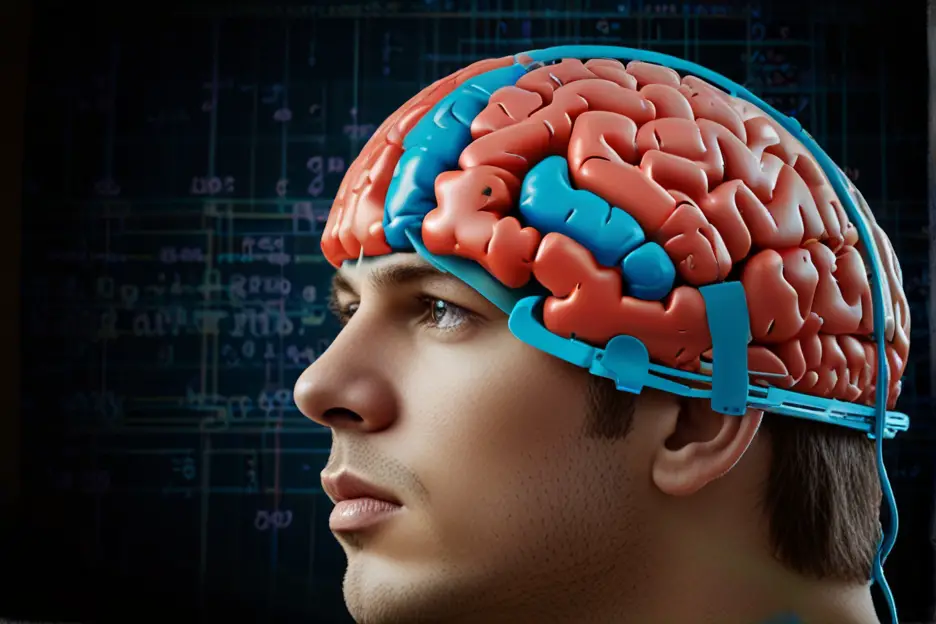
The human brain is a remarkable organ capable of incredible feats of processing and computation.
However, as we age, our brain processing speed can slow down, affecting our cognitive abilities and overall mental performance.
Fortunately, there are several strategies and techniques that can help boost brain processing speed, enhancing our mental agility and overall well-being.
In this article, we will explore the importance of brain processing speed, its impact on cognitive function, and provide actionable tips to improve it.
What is Brain Processing Speed?
Brain processing speed refers to the rate at which our brain processes and responds to information.
It is a fundamental aspect of cognitive function, affecting our ability to learn, remember, and respond to various stimuli.
Understanding brain processing speed can help us appreciate how our minds work and the factors that influence our cognitive abilities.

Components of Brain Processing Speed
Reaction Time
Reaction time is one of the simplest measures of brain processing speed.
It involves how quickly we can respond to a stimulus, such as a visual or auditory signal.
For instance, catching a ball, braking a car when a light turns red, or responding to a question are all examples of tasks that require quick reaction times.
Attention
Attention plays a crucial role in brain processing speed.
It involves our ability to focus on specific information while ignoring distractions.
Efficient attention allows us to process relevant information quickly and accurately, which is essential for tasks that require concentration and quick thinking.
Memory Recall
Memory recall is another critical component.
It involves retrieving information stored in our brain.
Faster memory recall means we can quickly access and use information when needed, which is important for problem-solving, decision-making, and learning new things.

How is Brain Processing Important in Cognitive Function?
Brain processing speed plays a crucial role in cognitive function, influencing various aspects of mental performance.
These include:
Attention
Brain processing speed is closely linked to attention, as it determines how quickly we can focus on relevant information and filter out distractions.
Faster processing speeds enable us to attend to multiple stimuli simultaneously, improving our ability to multitask and respond to changing situations.
Memory
Brain processing speed also influences memory recall and formation.
The speed at which our brain processes information affects how effectively we encode, store, and retrieve memories.
Faster processing speeds enhance memory recall and retention, allowing us to learn and remember new information more efficiently.
Learning
Brain processing speed is essential for learning new skills and information.
The ability to quickly process and integrate new information enables us to learn and adapt more effectively.
This is particularly important in situations where rapid learning is necessary, such as in emergency response or crisis management.

Tips to Boost Brain Processing Speed
Boosting brain processing speed requires a combination of lifestyle habits, brain training, and mindfulness techniques.
Here are some actionable tips to help you improve your brain processing speed:
Lifestyle Habits
Maintaining and enhancing brain processing speed involves adopting healthy lifestyle habits.
These habits not only support cognitive function but also contribute to overall well-being.
Here’s a closer look at some key lifestyle habits that can help keep your brain sharp and responsive.
Exercise regularly
Regular physical activity is one of the most effective ways to boost brain health.
Aerobic exercises, such as walking, running, swimming, and cycling, increase blood flow to the brain.
This enhanced blood flow promotes the growth of new brain cells, particularly in the hippocampus, a region critical for memory and learning.
Aim for at least 30 minutes of moderate-intensity exercise per day.
Prioritize sleep
Sleep is essential for cognitive function, playing a critical role in memory consolidation and information processing.
During sleep, the brain processes the information collected throughout the day, consolidating memories and clearing out toxins that accumulate during waking hours.
Aim for 7-9 hours of sleep each night to ensure your brain has enough time to perform these vital functions.
Fuel your brain with nutrition
Your diet significantly impacts brain health and cognitive function.
Foods rich in omega-3 fatty acids, antioxidants, and B vitamins are particularly beneficial.
Omega-3 fatty acids, found in salmon, flaxseeds, and walnuts, support brain cell structure and function.
Antioxidants, present in berries, dark chocolate, and leafy greens, protect brain cells from oxidative stress and inflammation.
B vitamins, abundant in whole grains, eggs, and legumes, are crucial for energy production and neurotransmitter function.
Manage stress
Chronic stress can have a detrimental effect on brain processing speed and cognitive function.
Stress increases cortisol levels, which can reduce blood flow to the brain and increase inflammation, potentially impairing memory and learning.
Managing stress effectively is crucial for maintaining cognitive health.
Practice stress-reduction techniques like meditation, deep breathing, or yoga to help manage stress levels.
These practices can calm the mind, reduce anxiety, and improve focus.

Brain Training
Brain training exercises can help improve processing speed, memory, and overall cognitive abilities.
Here are some effective brain training strategies to incorporate into your daily routine:
Challenge yourself with games and puzzles
Mentally stimulating activities, such as Sudoku, crossword puzzles, and brain training apps, are excellent ways to challenge your cognitive skills and enhance processing speed.
These games require you to use problem-solving strategies, memory recall, and logical reasoning, all of which stimulate different areas of the brain.
Learn a new skill
Learning a new language, instrument, or skill is not only fulfilling but also beneficial for brain health.
The process of acquiring new knowledge strengthens neural connections and enhances processing speed.
When you learn something new, your brain creates new pathways and adapts to the challenge, improving its overall efficiency.
Engage in dual-tasking activities
Dual-tasking activities require you to perform two tasks simultaneously, challenging your cognitive flexibility and processing speed.
These activities force your brain to switch between tasks quickly and efficiently, improving its ability to process information rapidly.
For example, playing a musical instrument while following a recipe involves coordinating motor skills, attention, and memory, all of which contribute to enhanced cognitive function.
Mindfulness and Focus Techniques
In addition to brain training activities and healthy lifestyle habits, incorporating mindfulness and focus techniques into your daily routine can further enhance brain processing speed and cognitive function.
Meditation and mindfulness practices
Regular meditation practice is a powerful tool for improving focus, reducing mental clutter, and enhancing overall cognitive function.
Mindfulness meditation, in particular, involves bringing your attention to the present moment without judgment, allowing you to observe your thoughts and feelings without getting caught up in them.

Practice active listening
Active listening is a valuable skill that can significantly improve information intake and processing speed.
It involves fully engaging with the speaker, paying close attention to their words, tone, and body language, and responding thoughtfully.
By actively listening, you can better understand and retain information, leading to faster and more accurate processing.
Conclusion
Boosting brain processing speed requires a combination of lifestyle habits, brain training, and mindfulness techniques.
By incorporating these strategies into your daily routine, you can improve your cognitive function, enhance your mental agility, and unlock the full potential of your mind.


